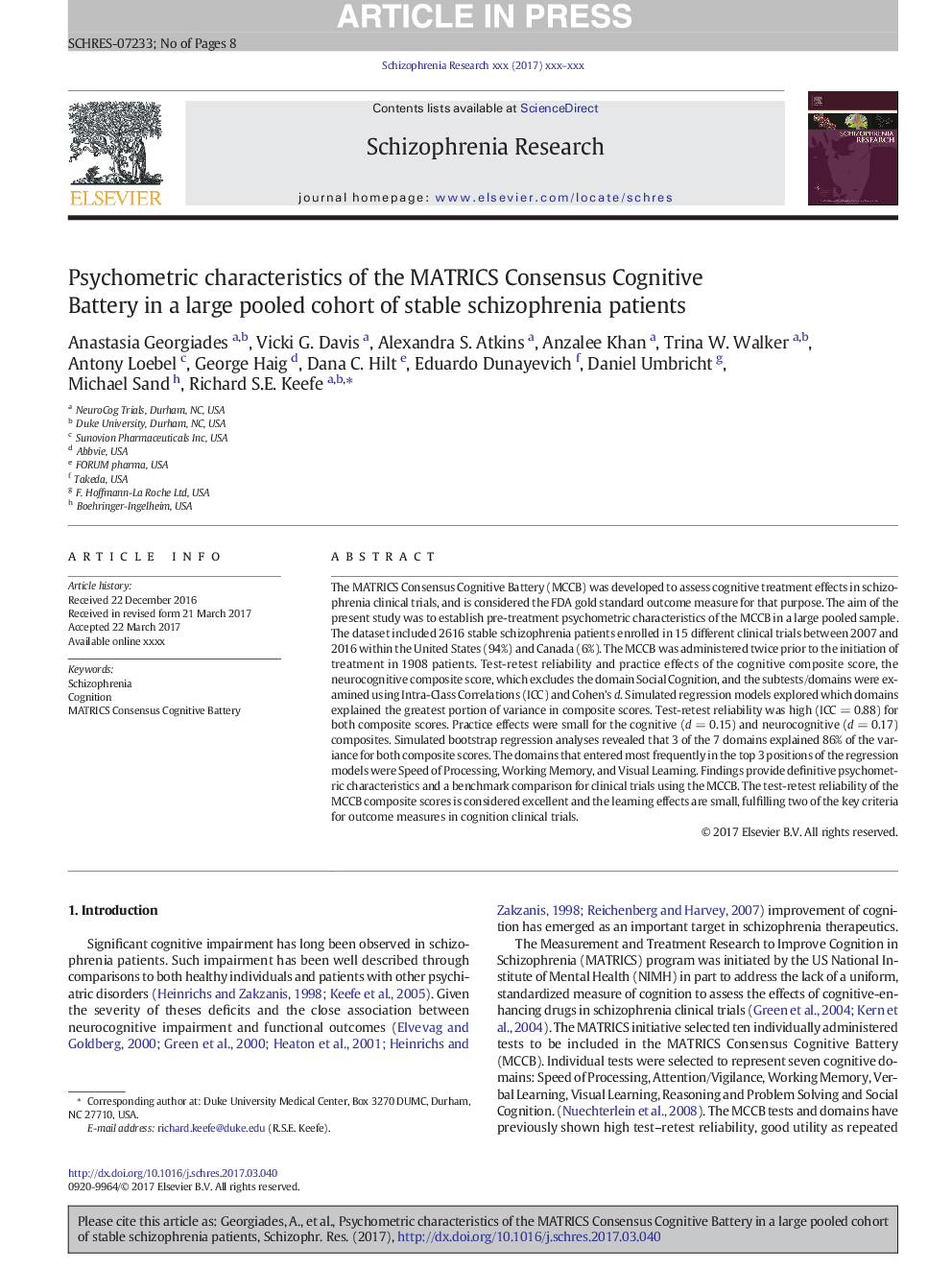ترجمه فارسی عنوان مقاله
ویژگی های روان سنجی باتری شناختی در مدل سازی ماتریکس در یک گروه مشترک بزرگ از بیماران مبتلا به اسکیزوفرنی پایدار
عنوان انگلیسی
Psychometric characteristics of the MATRICS Consensus Cognitive Battery in a large pooled cohort of stable schizophrenia patients
| کد مقاله | سال انتشار | تعداد صفحات مقاله انگلیسی |
|---|---|---|
| 157228 | 2017 | 8 صفحه PDF |
منبع

Publisher : Elsevier - Science Direct (الزویر - ساینس دایرکت)
Journal : Schizophrenia Research, Volume 190, December 2017, Pages 172-179
ترجمه کلمات کلیدی
جنون جوانی، شناخت، باطری شناختی تصدیق پذیری،
کلمات کلیدی انگلیسی
Schizophrenia; Cognition; MATRICS Consensus Cognitive Battery;

